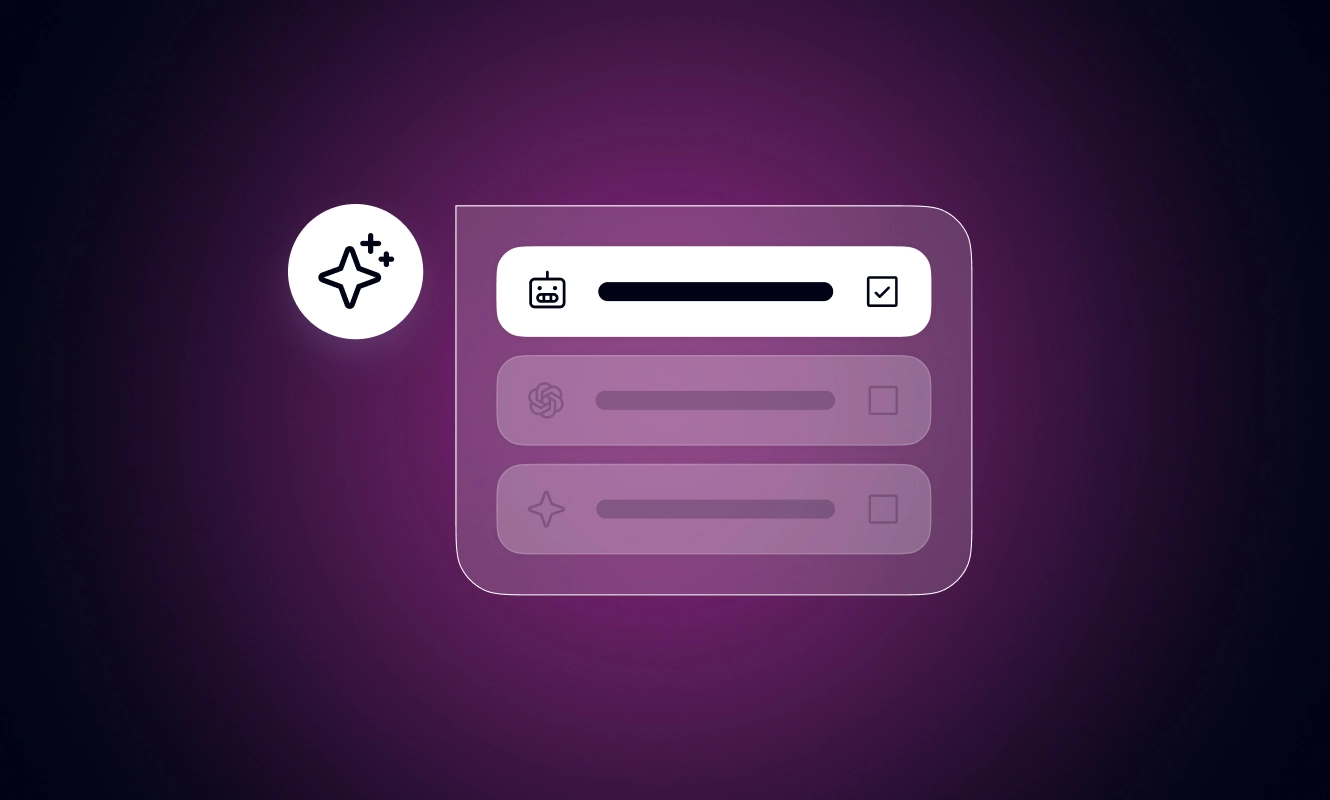Subscribe to the blog and receive recommendations to boost your CX
Customer experience management is undergoing a major transformation. If you work in customer service, marketing, or sales, you have probably faced the frustration of dealing with slow processes, generic responses, and users getting lost along the way. Sounds familiar? That is a clear sign of a model that no longer works. This is where multi-agent systems come into play and make a real difference.
What is a multi-agent system, and why should you pay attention to it?

A multi-agent system is a software architecture made up of several autonomous AI agents, each one specialized in a specific task. This is not about a generic chatbot trying to do everything and ending up only managing predefined tasks. It is a group of artificial intelligence (AI) agents, each trained to be the best in their area. Think of it as a team of experts, each with their own specialty, working together in real time to solve any customer need. That is how powerful it is.
And why is this relevant to you? Because specialization is the key to delivering fast, accurate responses that match what your customer expects. Forget about rigid flows and canned replies. With a multi-agent system, every interaction is handled by the most suitable agent at exactly the right moment, without the user even noticing the switch. The result: faster processes, better customer service, and internal teams free from repetitive tasks.
Use cases for multi-agent systems: real versatility and immediate impact
The true strength of multi-agent systems lies in their ability to adapt. No matter the industry or the size of your business, there is always a use case where specialization makes a real difference.
1. Lead pre-qualification: making the most of every opportunity
Automating lead pre-qualification makes it possible to identify, prioritize, and manage each contact with a level of precision that was once unthinkable. AI agents qualify prospects in real time, either by responding to inbound calls from interested users or by proactively reaching out through screening conversations. These AI agents gather key data, assess interest or purchase intent, and refer the most promising cases to a sales agent.
This type of operation is especially relevant for large-scale campaigns aimed at quickly filtering high-value leads in environments with high demand and strong competition for customer acquisition. For example, universities and training centers that handle thousands of inquiries about programs, scholarships, or enrollment can use this approach to quickly identify students with the highest intent to enroll. In retail, especially in e-commerce, this technology also enables automated chat support on websites or via WhatsApp, significantly increasing conversion rates.
2. Inbound and outbound sales: automation that drives growth
Modern sales demand both immediacy and personalization. Multi-agent systems handle both inbound lead generation and outbound campaigns, responding instantly to signals of interest and launching proactive actions that create new business opportunities.
In banking, for example, inbound sales are enhanced through click-to-call campaigns that automatically connect interested customers with the right specialist, speeding up the closure of financial products. Meanwhile, in telecommunications, outbound sales are being redefined: virtual agents analyze the customer’s history and launch personalized offers at the optimal moment, achieving commercial impact that traditional methods cannot match.
3. Customer service and FAQs: instant answers, satisfied customers
Thanks to the multi-agent system, agents trained in customer service can instantly resolve the most frequent questions, from product information to return policies or administrative procedures, ensuring consistent and fully available service. This capability is essential in retail, where customers expect quick answers about product availability, shipping, or promotions. It is also crucial in the public sector, where automation simplifies process management and improves citizens' perception of service.
4. Appointment scheduling: the perfect calendar, effortlessly
Managing appointments and bookings can be a logistical challenge, but with a multi-agent system that includes agents specialized in these tasks, coordination becomes automatic and precise. AI agents are connected to calendars to manage appointments, confirm availability, send reminders, and adjust schedules in real time, optimizing resources and reducing no-shows.
In healthcare, this translates into efficient management of medical appointments, minimizing waiting lists and improving the patient experience. In hospitality, automated booking allows restaurants and hotels to maximize occupancy and deliver fast, personalized service.
5. Technical support and claims: fast solutions, loyal customers
When an issue arises, speed and clarity in the response make all the difference. AI agents specialized in support within multi-agent systems diagnose problems, guide users step by step, and automatically escalate complex cases, ensuring effective resolution and a positive experience.
In insurance, this means validating coverage and processing claims efficiently and transparently. In telecommunications, the technology resolves everything from connectivity issues to billing questions, anticipating customer needs and strengthening loyalty.
6. Order management: a seamless shopping experience
Order management is more than a logistics process; it is the heart of the customer experience. Multi-agent systems automate everything from the initial inquiry to final delivery, handling inventory, modifications, shipping, and returns with a level of precision that wins over customers.
In retail e-commerce, this translates into real-time information, last-minute changes with no hassle, and proactive communication that turns every order into a share-worthy experience.
7. Collections management: efficiency and empathy in every interaction .
Recovering payments is an art that requires balancing firmness with empathy. Within the multi-agent system, AI agents can be created to automate collections management, adapting messages and strategies to each customer profile, offering payment alternatives, and keeping a detailed record of every interaction.
This capability applies across all industries, from financial services to utilities, allowing for maximum recovery while preserving long-term customer relationships.
Inagent: specialization and intelligent orchestration

This is where Inagent comes in, Inconcert’s platform designed to take conversational automation to the next level. Inagent allows the deployment of multiple AI agents, each trained for a specific role, within a single integrated environment. The result is an orchestrated, flexible, and scalable system capable of adapting to any business process, regardless of the industry.
The key to Inagent lies in its ability to train AI agents independently, optimizing each one for a specific task. Let us look at a practical example: a university wants to speed up lead generation and management. With Inagent, you can have:
- An AI agent specialized in lead pre-qualification, collecting data, analyzing profiles, and determining whether the lead is worth pursuing
- Another agent focused on answering frequently asked questions, providing clear and accurate information instantly about admissions processes, academic programs, and financing options
- A third agent responsible for appointment scheduling, managing calendars and resolving conflicts to coordinate admissions interviews
All of this happens in a fully orchestrated way, with automatic transfers between agents as needed, without the user noticing any disruption. The experience is smooth, natural, and always relevant.
This same approach applies to banking, e-commerce, healthcare, public sector, telecommunications, or tourism. Each agent is trained with data and conversational flows tailored to its function, ensuring precise responses aligned with business goals. If, during the interaction, the user changes the topic or needs a different type of assistance, Inagent automatically transfers the conversation to the most appropriate agent, seamlessly, since all agents share the same voice and name.
Worried about implementation time? Inagent includes pre-designed templates for each area of specialization. This means you can deploy AI agents in just a few minutes, with pre-optimized flows for use cases such as lead generation, technical support, appointment management, or onboarding.
How to get started with multi-agent systems
Adopting multi-agent systems does not require radical transformation. The process is agile, scalable, and adapts to the needs of each sector and type of business. For example, if you work in education, you can begin by automating lead generation and appointment scheduling, then expand to post-enrollment support. In e-commerce, you might start with a pre-sales support agent and later add others for order management. In banking, you can first deploy an agent for identity verification and then add product specialists. The typical process includes:
- Identify key processes: Where do bottlenecks most often occur? Which tasks require specialization?
- Select templates or design custom flows: Use Inagent’s resources or tailor agents to meet your goals.
- Train and test the agents: Adjust them using real data and business scenarios.
- Deploy and monitor: Implement the agents in selected channels and track their performance.
The impact is immediate: faster processes, better customer service, and internal teams focused on higher-value tasks. Most importantly, you will deliver a customer experience that evolves at the pace of your business.

The future of customer experience is multi-agent
Specialization and intelligent collaboration between AI agents are no longer just a promise—they are already a reality. Multi-agent systems are redefining customer experience, enabling companies and organizations to deliver faster, more accurate, and more personalized service. Inagent is the solution for those looking to stay ahead, combining AI, modular specialization, and easy implementation.
If you want your company to stand out, your customers to always receive the best service, and your team to be free from repetitive tasks, now is the time to embrace multi-agent systems. Ready to transform your CX? Discover everything Inagent can do for you: request a demo and see how to put it to work in your business.


